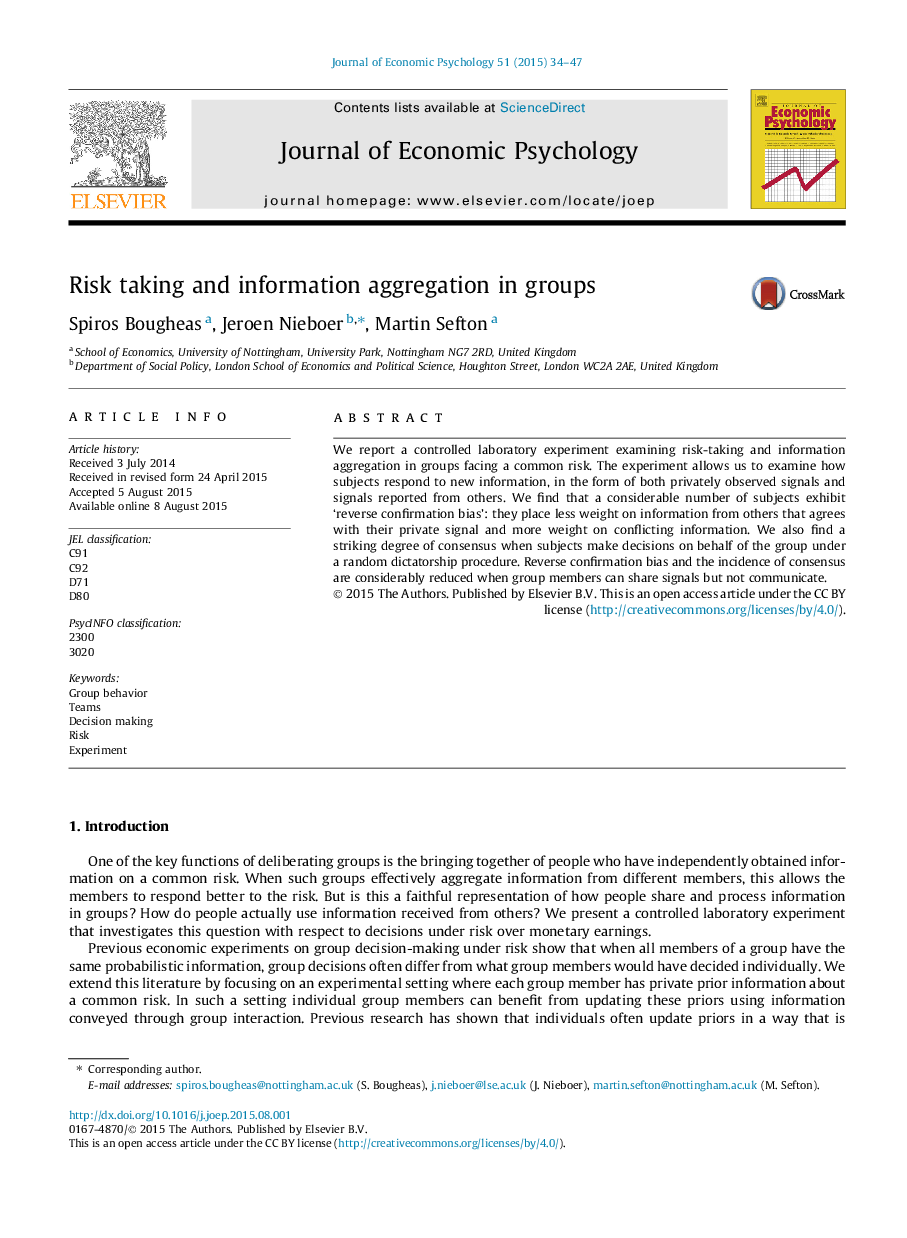| Article ID | Journal | Published Year | Pages | File Type |
|---|---|---|---|---|
| 7244482 | Journal of Economic Psychology | 2015 | 14 Pages |
Abstract
We report a controlled laboratory experiment examining risk-taking and information aggregation in groups facing a common risk. The experiment allows us to examine how subjects respond to new information, in the form of both privately observed signals and signals reported from others. We find that a considerable number of subjects exhibit 'reverse confirmation bias': they place less weight on information from others that agrees with their private signal and more weight on conflicting information. We also find a striking degree of consensus when subjects make decisions on behalf of the group under a random dictatorship procedure. Reverse confirmation bias and the incidence of consensus are considerably reduced when group members can share signals but not communicate.
Related Topics
Social Sciences and Humanities
Business, Management and Accounting
Marketing
Authors
Spiros Bougheas, Jeroen Nieboer, Martin Sefton,
